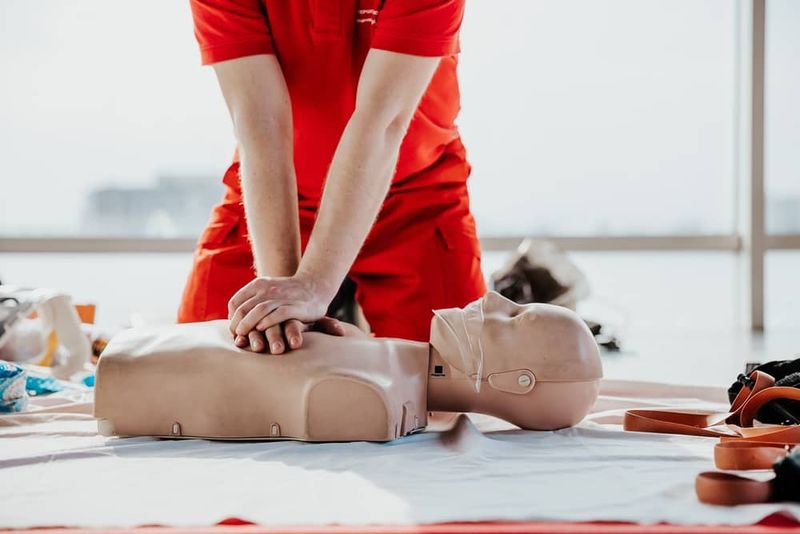In an ever-changing world, it’s easy to overlook the essential skills that form the foundation of our independence and success. Many of these skills were unintentionally skipped by Generation X when passing them down to their children.
This blog post aims to explore 15 life skills that are crucial for navigating adulthood, offering insights and practical advice to fill in the gaps. From personal finance and home maintenance to digital literacy and civic engagement, these skills are not only useful but essential for a well-rounded life.
1. Personal Budgeting & Credit Management
Managing your finances can feel like a daunting task, but it’s a skill worth mastering. Keeping track of your spending habits and understanding how to build a credit score are crucial aspects of financial health. Avoiding high-interest debt can save you from future financial pitfalls.
Using budgeting apps or a simple spreadsheet can simplify the process. These tools help visualize where your money goes and how to allocate it wisely. Regularly checking your credit report ensures you’re on the right track.
A little knowledge goes a long way in securing financial stability and peace of mind.
2. Basic Investing & Retirement Planning
Understanding the magic of compound interest can transform your financial future. By contributing to a 401(k) or IRA, you are planting seeds for your retirement. Even modest investments can grow substantially over time.
Index funds offer a low-risk way to enter the market. They are diversified and require minimal management. Start small and increase your contributions as you learn more.
Retirement planning doesn’t have to be overwhelming. With a bit of research and guidance, you can build a portfolio that supports your dreams. It’s never too early or late to start.
3. Filing Your Own Taxes
Filing taxes might not be anyone’s favorite task, but knowing how to do it yourself can save time and money. Understanding the differences between W-2s and 1099s helps you identify your income sources.
Itemizing deductions could result in significant tax savings. E-filing is becoming the norm, simplifying the process with user-friendly software. Many platforms guide you step by step.
Though hiring a professional is an option, filing your own taxes builds confidence and knowledge. It’s a yearly task that reinforces your financial independence and responsibility.
4. Cooking from Scratch
Cooking from scratch is a skill that nourishes both body and soul. Planning balanced meals allows you to control what goes into your food, ensuring healthier eating.
Reading and understanding recipes can seem complex, but practice makes perfect. Start with simple dishes that incorporate new techniques each time.
Mastering foundational techniques like sautéing, roasting, and baking opens a world of culinary possibilities. Not only does cooking save money, but it also brings joy and satisfaction. Sharing meals with others creates connections and cherished memories.
5. Home Maintenance & Repairs
Owning a home comes with the responsibility of upkeep and repairs. Knowing how to fix a leaky faucet or patch drywall can save both time and money. It empowers you to handle small issues without immediate professional help.
Unclogging drains and understanding basic electrical troubleshooting are invaluable skills. Having a basic toolkit at hand makes these tasks more manageable.
Learning home maintenance can be rewarding and reduce dependency on outside help. It gives you confidence in managing your space effectively, ensuring everything runs smoothly.
6. Car Maintenance 101
Understanding your car’s basic needs keeps it running smoothly and prevents breakdowns. Regularly checking tire pressure and knowing how to change a flat are essential skills for any driver.
Topping off fluids like oil, coolant, and brake fluid ensures your car operates efficiently. Recognizing when something feels off can prevent costly repairs.
Visiting a mechanic is unavoidable at times, but knowing the basics helps you communicate better about what your car needs. It instills a sense of independence and confidence on the road.
7. Basic Sewing & Clothing Care
Sewing might seem like a lost art, but it offers practical benefits that extend a wardrobe’s life. Mending tears and sewing on buttons prevent clothes from being discarded prematurely.
Learning to hem pants or skirts can be a lifesaver, especially when fashion choices are limited. These skills are not only economical but also give a sense of accomplishment.
Clothing care extends beyond repairs. Understanding fabric types and washing instructions keeps clothes looking new longer. It fosters a sustainable approach to fashion and personal style.
8. First Aid & CPR
First aid and CPR are invaluable skills that can save lives in emergencies. Knowing how to apply bandages and treat burns equips you to handle minor injuries.
Performing chest compressions might seem intimidating, but it’s a crucial skill during cardiac emergencies. Understanding when to call 911 ensures timely professional assistance.
These skills offer peace of mind and the ability to aid others in critical moments. Regular practice and refreshers are recommended to maintain proficiency, enhancing community safety and personal confidence.
9. Emotional Intelligence & Conflict Resolution
Emotional intelligence enhances relationships and personal well-being. Recognizing emotions in oneself and others leads to better communication.
Conflict resolution involves more than compromise. It requires empathy and active listening to find solutions that benefit all parties.
These skills promote harmony in personal and professional environments. Practicing them fosters a supportive and understanding community. Emotional intelligence is a lifelong journey that enriches interactions and builds stronger connections.
10. Networking & Career Building
Building a career requires more than skills; it involves connections. Crafting a compelling elevator pitch allows you to introduce yourself effectively.
Maintaining professional relationships helps uncover opportunities and mentorships. Being proactive in networking can lead to unexpected career advancements.
Career building is dynamic and continuously evolving. It requires adaptability and openness to new experiences. Leveraging these skills enhances your professional journey, leading to fulfilling and successful outcomes.
11. Resume Writing & Interview Skills
A well-crafted resume is your passport to job opportunities. Highlighting achievements and tailoring applications for each position increases your chances of success.
Interview skills are equally important. Confidently answering common questions demonstrates your fit for the role. Practice makes perfect, so rehearsing with a friend can boost your confidence.
These skills are integral to career success. They open doors and present you as a capable candidate. Continuous improvement in this area leads to a rewarding career path.
12. Time Management & Productivity Systems
Juggling tasks effectively requires robust time management skills. Prioritizing tasks ensures that important activities receive the attention they deserve.
Using calendars and to-do lists helps keep track of deadlines and commitments. Avoiding procrastination traps improves productivity and reduces stress.
Implementing productivity systems tailored to your needs enhances personal and professional life. These skills allow you to make the most of your time, leading to greater satisfaction and achievement.
13. Digital Privacy & Security
In the digital age, privacy and security are paramount. Creating strong passwords protects against unauthorized access. Enabling two-factor authentication adds an extra layer of security.
Identifying phishing scams prevents data breaches. Understanding your online footprint allows for better control over personal information.
Staying informed about digital threats helps safeguard your online presence. These skills protect your identity and data, providing peace of mind in a connected world.
14. Critical Media & Information Literacy
In a world of information overload, media literacy is vital. Fact-checking sources ensures you are informed with accurate details.
Understanding bias in reporting helps distinguish between news and opinion. Analyzing information critically prevents misinformation from spreading.
These skills empower you to navigate today’s complex media landscape. They promote informed decision-making and responsible consumption of news. Being media literate fosters a more discerning and aware society.
15. Civic Engagement & Voting
Participating in democracy is a fundamental right. Registering to vote is the first step in civic engagement.
Researching candidates and issues ensures informed voting decisions. Understanding local government structures helps advocate for causes you believe in.
These skills empower you to contribute to your community and influence change. Civic engagement fosters a sense of responsibility and connection to society. Every vote counts in shaping the future.















